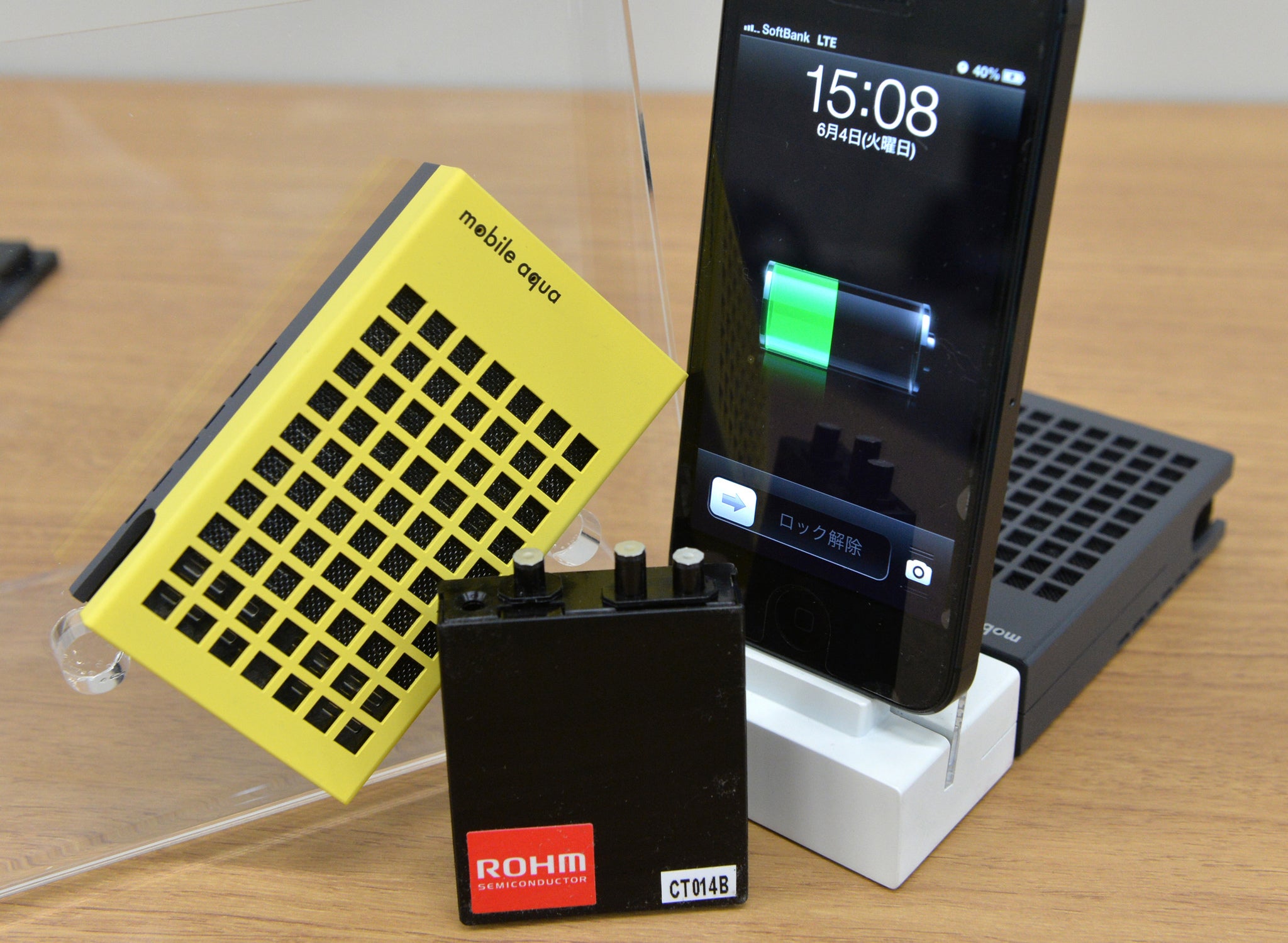British firm invents hydrogen-powered phone battery that could keep your mobile charged for a week
The prototype cell is so small that it can fit into the body of an iPhone 6 without the need for alterations

Your support helps us to tell the story
From reproductive rights to climate change to Big Tech, The Independent is on the ground when the story is developing. Whether it's investigating the financials of Elon Musk's pro-Trump PAC or producing our latest documentary, 'The A Word', which shines a light on the American women fighting for reproductive rights, we know how important it is to parse out the facts from the messaging.
At such a critical moment in US history, we need reporters on the ground. Your donation allows us to keep sending journalists to speak to both sides of the story.
The Independent is trusted by Americans across the entire political spectrum. And unlike many other quality news outlets, we choose not to lock Americans out of our reporting and analysis with paywalls. We believe quality journalism should be available to everyone, paid for by those who can afford it.
Your support makes all the difference.A British company claims to have invented a working hydrogen-powered smartphone battery that could potentially allow your phone to go a week without recharging.
Intelligent Energy, a British power technology company, has made a working prototype of an iPhone 6 with the new battery.
Fitted with its rechargable battery and their new technology, the iPhone looks and feels very similar - the only difference is the small vents on the back of the phone, that allow imperceptible amounts of water vapour to escape, a byproduct of the hydrogen battery.
The battery works by combining hydrogen and oxygen in a small and very thin fuel cell, creating electricity. The only waste products are small amounts of heat and water.

The cell is the same size as the iPhone, but is so thin that it can fit into the existing chassis of the phone without any need for major alterations.
Speaking to the Telegraph, Henri Winand, the chief executive of the company, said: "To our knowledge this has never been done before."
Although the battery could extend a phone's life by days, it still requires recharging - the fuel cell can be topped up with hydrogen gas via the adapted headphone socket.
The current version is only a prototype, but the company is looking at a commercial version that could potentially revolutionise mobile phones.
The commercial version could take the form of a small cartridge that fits into the bottom of the phone, that would give a week of power and can be thrown away when not needed.
Mark Lawson-Statham, the corporate finance chief of Intelligent Energy, said that the technology is currently a "couple of years out".
Portable fuel cell manufacturers have been promising that their devices will take over the market for years, but these power sources have typically been too bulky and expensive to have value to everyday consumers.
A small and low-cost fuel cell that packs a punch and promises to give your phone more than a few hours' battery could be the device that finally goes mainstream.
Join our commenting forum
Join thought-provoking conversations, follow other Independent readers and see their replies
Comments